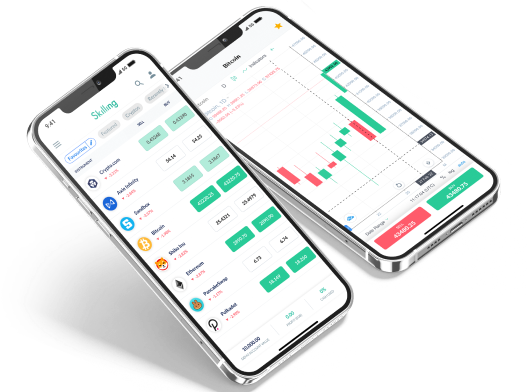Financial instruments: their importance for traders

What rings in your mind when you hear the term 'financial instruments'? You might think of stocks, loans, bonds, derivatives, and other investment options available in the market. But, in reality, financial instruments are much more diverse. So what are they really?
What are financial instruments?
These are tools or contracts that represent a monetary value and can be traded or exchanged between parties. They serve as vehicles for investors and traders to engage in various financial activities. These instruments come in a wide range of forms, such as stocks, bonds, options, futures, currencies, and commodities. Each type of instrument has its own characteristics, risks, and potential returns.
Financial instruments play a crucial role in facilitating capital flows, managing risk, and enabling individuals and businesses to invest, hedge, or speculate in the global financial markets.
Types of financial instruments
Equity Instruments (Stocks):
They represent a share in ownership of a company. By purchasing a company's stocks, investors become partial owners and can claim a portion of the company's gains. The benefit of investing in equity instruments is that investors get the potential for high growth based on the company's success. However, this comes with an increased risk as stocks are subject to market volatility that could quickly affect their value.
Mutual Funds and Exchange-Traded Funds (ETFs):
Mutual Funds and ETFs are collections of investments pooled together from various investors. The biggest benefit of investing in these financial instruments is diversification. By investing in a mutual fund or ETF, investors gain exposure to multiple assets - equities, fixed income, and commodities. This diversification helps to manage risk by balancing losses and gains across a diversified portfolio. One of the biggest risks associated with Mutual Funds and ETFs is the management expense ratio, which could eat into the investment returns.
Foreign Exchange (Forex):
Foreign exchange, or forex trading, involves buying and selling currency pairs. The benefit of forex trading is the ability to profit from fluctuations in the exchange rates between two currencies. Forex trading offers traders high liquidity and 24/7 market availability. However, forex trading is also highly speculative, with high levels of volatility and risk.
Commodities:
Commodities refer to raw materials or primary goods that are traded on exchanges. Although commodities like precious metals, energy products, raw materials, or agricultural products are actively traded on global markets, they generally do not fall under the definition of financial instruments as they don't represent a claim or obligation over something else. However, it's important to note that derivatives based on commodities do qualify as financial instruments. These derivatives encompass futures, forwards, and options contracts that utilise a commodity as the underlying asset.
It’s important to note that these are just a few examples of the wide range of financial instruments available in the global markets. Each instrument serves a specific purpose, providing investors and traders with opportunities to invest, hedge, or speculate based on their financial goals and risk appetite.
Why are they important for traders?
Financial instruments are important for traders for several reasons:
- Diversification: They provide traders with the ability to diversify their investments across different asset classes, such as stocks, bonds, commodities, or currencies. Diversification helps to spread risk and potentially enhance returns by reducing exposure to any single investment.
- Risk management: Traders can use them to mitigate or manage risks associated with their investments. For example, derivatives like options or futures allow traders to hedge against potential losses or protect their portfolios from adverse price movements.
- Liquidity: Financial instruments, especially those traded on well-established markets, offer liquidity. Traders could easily buy or sell these instruments at prevailing market prices, allowing for quick entry or exit from positions.
- Speculation and potential for gains: Financial instruments provide traders with opportunities for speculation and potential for gain. By analysing market trends, news, and technical indicators, traders could attempt to predict price movements and capitalise on them.
Access to global markets: They enable traders to access markets worldwide. Through instruments like foreign exchange (Forex) or exchange-traded funds (ETFs), traders could participate in international markets without physical ownership of assets.
Want to learn some more cool stuff about trading and finance? Visit our blog now.
FAQs
Why are financial instruments important for traders?
They provide traders with opportunities for diversification, risk management, liquidity, speculation, income generation, and access to global markets.
How can I diversify my investments using financial instruments?
You can diversify your investments by allocating funds across different asset classes, such as stocks, bonds, commodities, and currencies. This helps spread risk and potentially enhance returns.
What risks should traders be aware of when dealing with financial instruments?
Risks associated include market fluctuations, credit risk, interest rate risk, volatility, leverage risks, counterparty risk, inflation risk, and geopolitical factors.
How can traders manage risks associated with financial instruments?
Traders can manage risks by diversifying their portfolios, using risk management tools like stop-loss orders, setting clear investment goals and risk tolerance, conducting thorough research, and seeking professional advice.
Where can I access financial instruments for trading?
Financial instruments are accessible through various platforms, including stock exchanges, bond markets, forex brokers, commodity exchanges, and online trading platforms such as Skilling who offer CFDs.
Experience Skilling's award-winning platform
Try out any of Skilling’s trading platforms on the device of your choice across web, android or iOS.

Past performance does not guarantee or predict future performance. This article is offered for general information and does not constitute investment advice. Please be informed that currently, Skilling is only offering CFDs.










